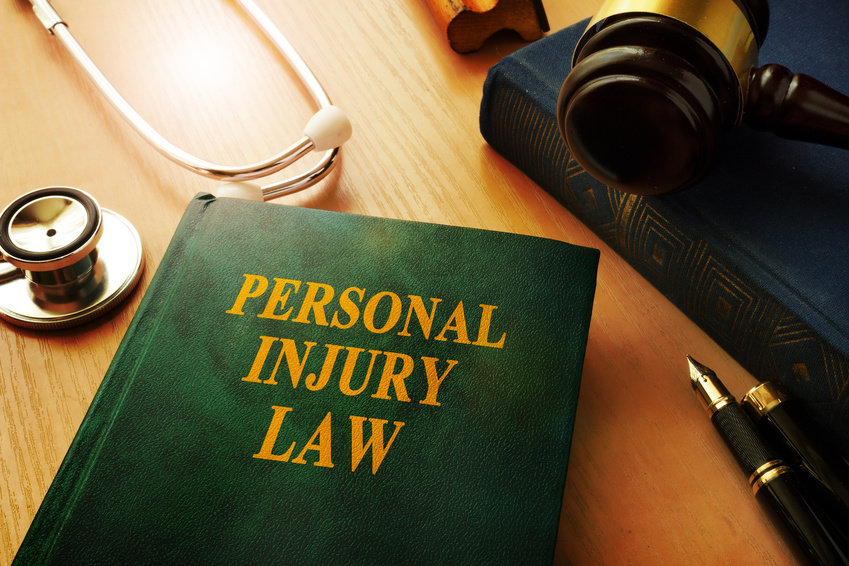
How Do Law Firms Get Paid in Personal Injury Cases?
February 15, 2022Suppose you have been involved in a personal injury case and have hired a law firm to represent you. The question that inevitably comes to mind is; how do law firms get paid? If you are looking into the matter, it would be good to know what the typical process entails. It goes without saying that if you or your loved one has been hurt by someone else’s actions, you may be seeking some form of compensation for your troubles. Hale Law, P.A. – a reputable personal injury law firm, can help you through the intricacies of personal injury as it can be overwhelming for even the toughest of spirits.
Table of Contents
How Does a Personal Injury Lawyer Get Paid?
Contingency fees are the most common way that personal injury lawyers get paid, and for good reason. The contingency fee is based on the percentage of an amount that a plaintiff will receive out of a settlement or judgment. If the full amount is not recovered, then the law firm has no recovery and therefore no payment from the case. On the other hand, if the full amount is recovered, then the law firm will receive its percentage based on the recovery.
It is very important that both parties to a contingency fee arrangement be clear about what is expected of each party. A common practice is to include an “understanding” page within the signed contract between attorney and client. This understanding will spell out how expenses, taxes, court costs, and attorney fees will be handled. Include a provision for accounting to ensure that the client receives all funds due to them.
How is the Contingency Fee Determined?
There are no set rules for calculating contingency fees, and each state has its own methods and requirements. First, there is the “lodestar” method which takes into account hours spent researching and litigating a case as well as disbursements (including costs associated with depositions, travel, court fees, etc.). This method is good for calculating the minimum fee that an attorney should receive.
How Does Personal Injury Law Work?
Personal injury is an area of law that addresses accidents in which one person has been hurt. A personal injury lawyer typically handles these types of cases, with the client receiving compensation for medical expenses, lost wages, and pain and suffering.
The responsible party, in this case, could be a company or even another individual. If you experience injuries due to a faulty product or a car accident, for example, you could sue the company or person who caused your injuries for monetary damages, medical expenses, and lost wages.
Personal injury law also focuses on medical malpractice. If you were in an operating room, and it was discovered that the surgeon operated upon the wrong appendage, you could seek compensation in a personal injury lawsuit.
Personal injury law is often associated with tort law. Tort law involves legal issues where one party suffers an injury due to the negligent or reckless actions of another party and seeks financial damages from that party in court.

What To Look For in a Personal Injury Lawyer
If you were recently injured in an accident, hiring a personal injury lawyer is necessary to increase your chances of being fairly compensated for the injuries you incurred. You’ll want to avoid any mistakes or missteps when you’re trying to eke out every penny of the damages for your loss of income, medical expenses, and more.
The first thing you’ll want to do is make sure that you have a thorough understanding of the kind of problems that a personal injury lawyer might be able to help your case with. The biggest issue which you’re going to face is finding and retaining a lawyer who has the training, experience, and expertise o handle your case professionally.
When looking for a personal injury lawyer, it’s important for you to consider how much work you’ll actually need from them during the course of your case. The last thing you want is to hire a lawyer who will overcharge you for their services. This can be especially problematic if your case involves a lot of legal wrangling, so it should be the first thing that you consider when making this appointment. All fees must be disclosed upfront to avoid being sidelined when it’s too late.
Discussing Fees in a Personal Injury Case
In a personal injury case, there are many factors that determine the amount of money you might be awarded. One critical factor is the type of injuries you sustained. Naturally, those who have suffered significant physical injury will receive a higher award than those who haven’t. Fees are typically paid out of the client’s damages. A lawyer will collect all of the information necessary then will negotiate with you on how many hours you expect them to work. The bulk of what you pay for is time.
Fees will differ from state to state due to different statutes and case laws. Fees are usually negotiated in a formal proceeding between the lawyer and the client. It is best to have a discussion with your personal injury attorney about fees before you begin working on a case. Since each case is different, it is difficult to determine exactly what a plaintiff will spend on legal costs. This amount varies depending on the intricacies of the case and all parties involved.
Why Do You Need a Law Firm for a Personal Injury Case?
In most cases, a law firm helps with the litigation aspects of a personal injury case by representing plaintiffs and defendants in litigation. In addition to negotiating settlements on behalf of clients who have been injured or damaged, law firms can also provide expert witnesses whose credentials are required to prove liability before the court. Courts usually require expert witnesses to testify on whether or not the defendants’ actions directly caused the injuries or damages alleged in the case.












